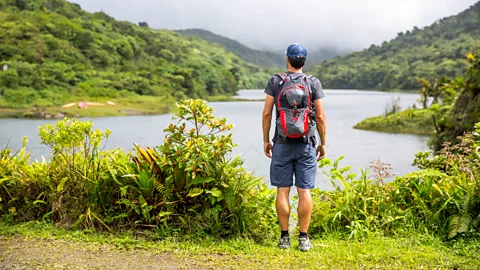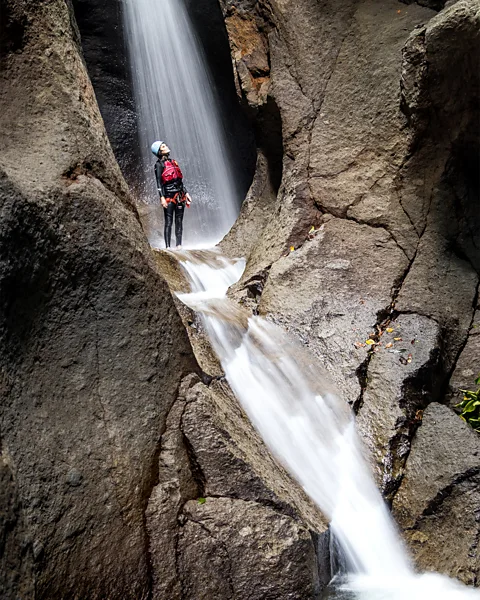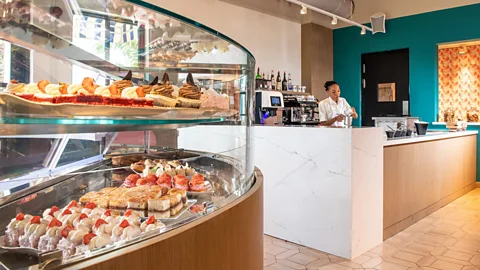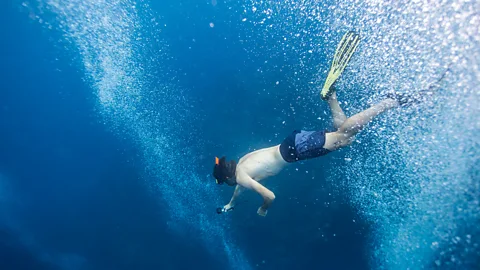Beyond the buffet: Why all-inclusive resorts are sending guests off site
 Fort Young Hotel & Dive Resort
Fort Young Hotel & Dive ResortLong associated with swim-up bars and endless beach time, all-inclusive resorts are rewriting the rules to meet the changing expectations of post-pandemic travellers.
When international travel resumed following the easing of Covid-19-related restrictions in 2022, Gregor Nassief, owner of Dominica's Fort Young Hotel and Dive Resort, was preparing for what many were calling the era of "revenge travel". With demand surging for all-inclusive holidays, he considered launching simple, one-stop-shop holiday packages. But he quickly realised that Dominica – nicknamed the "Nature Island of the Caribbean" – is not your typical beach destination.
"Travellers who come here don't want to do the fly-and-flop, where you sit at the beach and do nothing else," says Nassief. "People come here to explore Dominica. It would be impossible for an all-inclusive offering to succeed here if we don't include the island."
Nassief's realisation is part of a broader shift in resort travel. Long associated with swim-up-bars, buffets and endless beach time, all-inclusive resorts are adapting to meet the changing expectations of post-pandemic travellers. Many now crave both ease and adventure, seeking a frictionless stay with access to meaningful local experiences. From guided hikes and cultural outings to restaurant dinners and self-drive excursions, the all-inclusive model is expanding to include more of the surrounding destination. The shift, which began in earnest around 2022, continues to evolve in 2025 as more travellers prioritise connection, authenticity and exploration – all from the comfort of a five-star resort.
Nassief's "island inclusive" package launched in January 2022, offering guests not only full board and airport transfers, but a daily land or sea group excursion such as a trek to the spectacular waterfalls at Trafalgar Falls or a guided visit to lively Roseau Market. Despite requiring a five-night minimum booking and a significant upcharge (the island-inclusive package is $456 per person per night based on double occupancy, while the room-only rate starts at $302 a night), the programme now accounts for 30% of the hotel's all-inclusive leisure bookings.
 Fort Young Hotel & Dive Resort
Fort Young Hotel & Dive ResortA similar model drew Manila-based lawyer Kathrina Sadsad-Tamesis to Nay Palad Hideaway on Siargao, a recently trendy island in south-eastern Philippines, in 2024. With rates starting at $900 per person per night, a stay at the luxury resort includes made-to-order meals, massages and private off-property excursions like surfing classes, paddleboarding along nearby mangroves or visiting the picturesque Magpupungko rock pools.
"I like the fact that you don't need to check prices once you're there," Sadsad-Tamesis says, adding that she would love to see more resorts offering similar packages that build outings into their rate. To her, it encourages a more active trip. "You don't need to think about what you are going to eat, you don't have to plan your activities, because they planned it all for you.
"Sometimes planning is the hardest part," she adds, "so if the resort is already including activities, it is easier to participate."
This blend of ease and engagement appeals to many travellers. A'Rielle Thomas, a family and honeymoons specialist at Fora Travel, estimates that 50% of her all-inclusive clients are now looking for experiences beyond the resort gates. "They don't want just a flop-and-stop vacation. They want to interact with locals and with the destination," she says. Thomas believes that it's an opportunity for resorts to reimagine the guest experience – and tap into a new demographic of travellers who want the best of both worlds: a great beach resort and an opportunity for adventure.
"This is a blind spot for many resorts, because for a long time, getting guests offsite hasn't been their focus," she explains. "If I'm staying at a resort but they offer a transfer and a guide to see Chichén Itzá, that's a totally different value proposition and will be more enticing to someone who might not want to sit at a beach the whole time."
 Sandals Royal Curaçao
Sandals Royal CuraçaoBut the excursions don't have to be as involved as a visit to a historical site or a day of island hopping. For some, a change of scenery for a meal could be enough, which is why Sandals launched their Island Inclusive dining programme in 2022 at Sandals Royal Curaçao. The initiative offers guests in select room categories dinner at a local restaurant, complete with transfers and a $250 dining credit. According to Jessica Shannon, chief experience officer at Sandals, this has been a wildly popular perk with a vast majority of qualifying guests taking advantage. The company now plans to bring the activation to the entire Sandals portfolio of 17 resorts.
Off-site meals are just one part of the Local Discovery initiative at Ikos Resorts, which operates seven hotels in Mediterranean hotspots like the island of Kos and the historic city of Marbella. Introduced in 2015, the initiative encourages guests to explore some of Europe's most beautiful regions for no extra cost. In addition to lunches or dinners at seafood taverns and family-owned eateries, visitors can also borrow a car for independent rides through the Costa del Sol or Mallorca's hilly interior. The Museum of Asian Art on Corfu, Pablo Picasso Museum in Marbella and Akrani winery on Kos are just some of the venues included in the brand's Culture Pass programme, which offers Ikos guests free access.
Meanwhile, in 2023 Paradisus by Meliá unveiled their "Destination-Inclusive concept" for guests staying in higher rooms categories, which adds off-resort experiences to the all-in packages at many of their resort locations, from Los Cabos, Mexico, to Punta Cana in the Dominican Republic and Gran Canaria in Spain. At Paradisus Palma Real Golf & Spa Resort, a guest might be whisked away on a catamaran to practice yoga on an unspoiled beach. At Paradisus by Meliá Gran Canaria, meanwhile, staying in a superior room can include a guided hike around Roque Nublo or a visit to the Banana Museum.
 Fort Young Hotel & Dive Resort
Fort Young Hotel & Dive ResortAccording to Paula Forero, general manager of Paradisus Palma Real, hoteliers are learning that the needs of today's travellers – even those who are booking all-inclusives – have shifted as a result not just of the pandemic but also of social media. Now that travellers can easily consume content about the destinations of their upcoming vacation, they're feeling more intrepid, not wanting to miss out on the sights and sounds of the places they're scouting on platforms like Instagram and TikTok.
"Before, travellers were OK with spending seven days at a hotel, resting, enjoying, eating, not thinking," Forero explains. "Now, no. Guests are more curious, because they have access to more information. They want more experiences, more adventures."
--
If you liked this story, sign up for The Essential List newsletter – a handpicked selection of features, videos and can't-miss news, delivered to your inbox twice a week.
